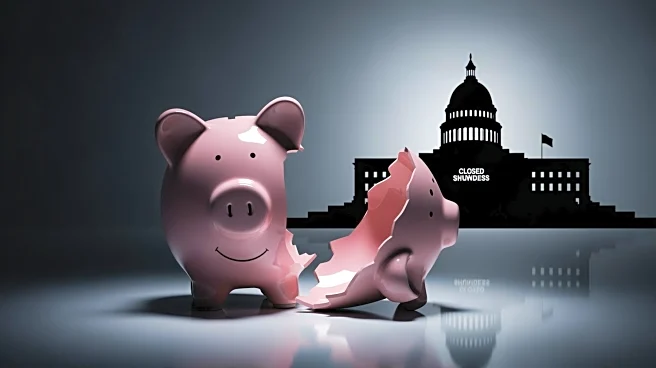What's Happening?
US consumer sentiment has dropped to near-record lows, influenced by the ongoing government shutdown and rising prices affecting personal finances. The University of Michigan's preliminary November sentiment index
fell 3.3 points to 50.3, close to the lowest recorded level since 1978. The decline in sentiment was widespread across various demographics, including age, income, and political affiliations. Concerns about unemployment have surged, with 71% of survey respondents expecting joblessness to increase in the coming year. The Federal Reserve Bank of New York also reported heightened anxiety about job security, with the perceived likelihood of unemployment rising to 43% in October. Despite these challenges, inflation expectations have eased over the long term, with consumers anticipating a 3.6% annual increase in costs over the next five to ten years.
Why It's Important?
The decline in consumer sentiment is significant as it reflects broader economic uncertainties and potential impacts on consumer spending. The government shutdown has delayed key federal economic data, complicating the assessment of the economic outlook. This sentiment drop could influence consumer behavior, potentially leading to reduced spending and slower economic growth. The widespread concern about unemployment and personal finances may further weaken consumer confidence, affecting industries reliant on consumer spending. Additionally, the sentiment index serves as a critical indicator for policymakers and businesses in understanding public perception and planning economic strategies.
What's Next?
As the government shutdown continues, the availability of federal economic data remains limited, leaving private-sector surveys as crucial substitutes. The sentiment index suggests that even after the shutdown ends, consumer confidence may remain low by historical standards. However, some analysts expect consumption growth to remain relatively healthy in the coming quarters, despite weak sentiment. Policymakers and businesses will need to monitor these trends closely to adapt strategies and support economic recovery.










